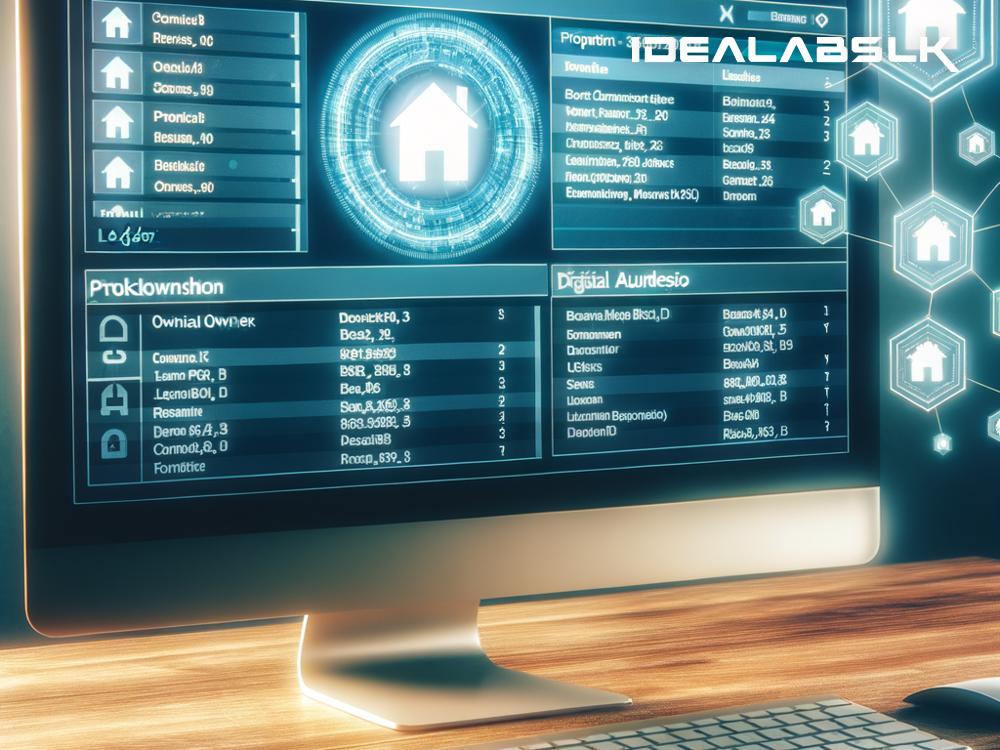Blockchain for Real Estate: Creating a Digital Ledger for Property Ownership
Blockchain technology, once primarily associated with cryptocurrencies like Bitcoin, is now being heralded as a revolutionary tool for various sectors, including real estate. When blockchain technology meets real estate, it creates a digital ledger for property ownership, promising to make buying and selling properties simpler, safer, and more transparent. But what exactly does this mean for homeowners, buyers, sellers, and the real estate market as a whole? Let's break it down into simpler terms.
What is Blockchain?
Imagine a book where all transactions, once written, cannot be erased or altered. This book is open for everyone to see, ensuring complete transparency. This is a very basic way of understanding blockchain. Technically, it's a digital record of transactions maintained across several computers linked in a peer-to-peer network, making it highly secure and nearly immune to fraud.
The Traditional Hurdlers in Real Estate
The traditional real estate market faces several challenges. The paperwork is overwhelming, the risk of fraud is high due to forged documents, and the whole process from viewing a property to finally owning it can be sluggish and opaque. Each step involves intermediaries — real estate agents, lawyers, banks, etc., making the process even more cumbersome and costly.
How Blockchain Revolutionizes Real Estate
Blockchain technology proposes an elegant solution to all these challenges. Here's how:
-
Streamlined Transactions: By using blockchain, the entire history of a property — from its construction to every single transaction it has undergone — is available in a digital ledger. This digital ledger can significantly streamline buying and selling processes by making all past transactions clear and indisputable.
-
Reduced Need for Middlemen: Since blockchain operates on a peer-to-peer basis and its records are tamper-proof, the need for intermediaries like lawyers and real estate agents may significantly reduce. This could lower transaction costs and speed up the process of buying or selling a property.
-
Improved Security and Transparency: In a blockchain system, once a transaction is recorded, it cannot be altered or deleted. This practically eliminates the possibility of fraud. Moreover, since this ledger is not controlled by a single entity and is available for public verification, it ensures greater transparency.
-
Smarter Contracts: One of the most exciting applications of blockchain in real estate is "smart contracts." These are self-executing contracts with the terms of the agreement directly written into lines of code. They automatically enforce and execute the terms of a contract when conditions are met, minimizing the need for intermediaries and making transactions quicker and smoother.
Practical Examples and Future Potential
While the idea of integrating blockchain into real estate is still relatively new, several initiatives around the world are testing its practical applications. For instance, countries like Sweden are experimenting with blockchain to manage land registries, while startups are creating platforms where people can buy and sell property tokens, representing ownership or a share in real estate investments.
The potential future impacts of blockchain on real estate are vast. It could transform property ownership by making it possible to own fractional parts of properties, democratizing real estate investment. Additionally, it could enhance global property search processes, make cross-border transactions easier, and might even change the rental property management industry by simplifying and securing lease agreements.
Challenges and Considerations
Despite its potential, the fusion of blockchain and real estate is not without challenges. The technology is still in its infancy and faces hurdles like regulatory acceptance, scalability, and the digital divide, as not everyone has the necessary knowledge or access to digital technologies.
Moreover, transitioning to a blockchain-based system would require significant changes in legal and regulatory frameworks, especially concerning property ownership and transfer laws.
The Road Ahead
As we navigate through the complexities of integrating blockchain into real estate, it's clear that this technology holds the promise of transforming property ownership in unprecedented ways. By minimizing fraud, reducing transaction times and costs, and creating a more open and transparent market, blockchain could indeed democratize property ownership, investment, and management.
While the road ahead may have its share of challenges, the potential benefits of a blockchain-driven real estate market are vast and exciting. As technology evolves and more pilot projects come to fruition, we might just be on the brink of a real estate revolution.
In conclusion, blockchain is not just a fad; it's an innovation that could dramatically alter how properties are bought, sold, and managed. For homeowners, investors, and the real estate sector at large, staying informed and adaptable to these changes could pave the way for a smarter, more secure, and inclusive property market.

